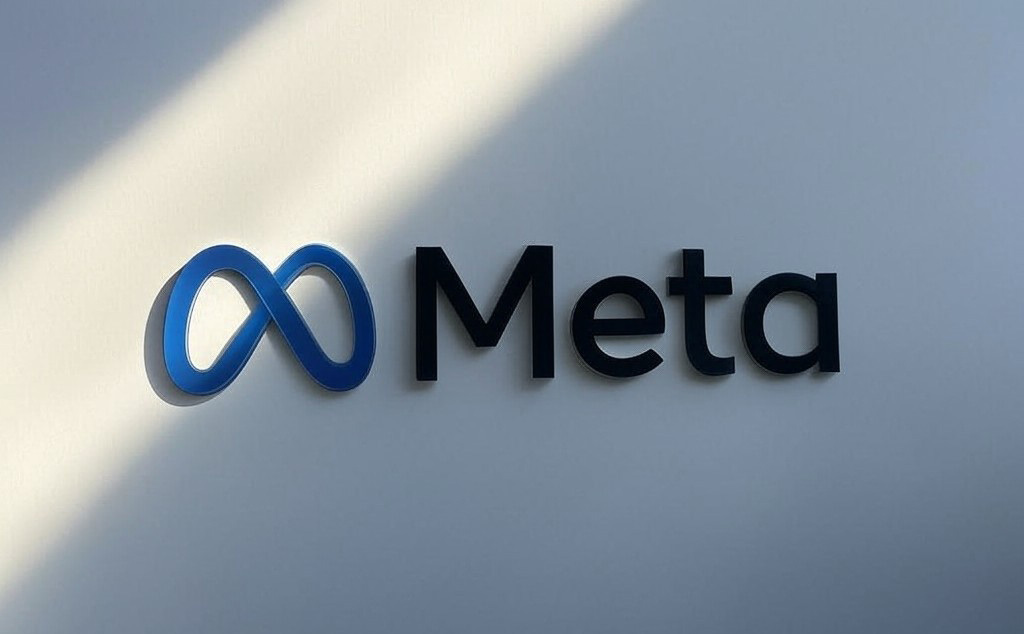- Amidst a challenging start for Big Tech in 2025, Meta (META) stands out with a 26% stock increase, driven by strategic AI investments focused on enhancing its own platforms rather than selling AI services externally.
- Meta’s AI initiatives have directly improved user engagement, with an 8% increase in time spent on Facebook and 6% on Instagram, alongside a surge in advertisers using its generative AI tools from 1 million to 4 million in six months.
- The company’s open-source approach with Llama AI models not only boosts current platform performance but also sets the stage for future monetization through licensing, as Meta plans to advance with the multimodal and agentic capabilities of Llama 4.

In a striking divergence from its Big Tech peers, Meta (META) has emerged as Wall Street’s darling in early 2025, demonstrating how a focused artificial intelligence (AI) strategy can yield immediate returns. While industry giants like Amazon (AMZN), Google (GOOG), Microsoft (MSFT), Apple (AAPL), and Tesla (TSLA) navigate through disappointing earnings and market skepticism, Meta’s stock has soared nearly 26% since the year’s start, achieving an unprecedented 20-session winning streak and reaching a record high of $740.91.
The secret to Meta’s success lies not in the scale of its AI investments – though substantial at $60-65 billion in planned capital expenditures for 2025 – but in their laser-focused application. Unlike its competitors, who are building massive AI infrastructure primarily to serve external customers, the $1.87 trillion market cap Meta has positioned itself as what Futurum Group CEO Daniel Newman calls “the ultimate customer zero,” developing AI capabilities that directly enhance its core social media and advertising businesses.
This strategic clarity has already produced tangible results. Meta’s AI-powered improvements to content recommendations have significantly boosted user engagement, with Facebook seeing an 8% increase in time spent on the platform and Instagram experiencing a 6% rise. Perhaps more impressively, the company’s AI-driven advertising tools have seen explosive adoption, with the number of advertisers utilizing these capabilities quadrupling from 1 million to 4 million in just six months.
The contrast with other tech giants is stark. While Amazon plans to invest over $100 billion in AI infrastructure in 2025, and Google and Microsoft have committed $75 billion and $80 billion respectively, these companies face a more complex path to monetization. Their investments must translate into attractive products and services that convince external customers to adopt their platforms – a process that inherently involves more uncertainty and longer time horizons.
Meta’s advantage extends beyond its internal focus. The company’s open-source AI strategy, centered around its Llama family of models, has positioned it to potentially capture significant value in the broader AI ecosystem. While currently free to use (with some limitations, including a 700 million monthly user cap), Llama has gained traction as a foundation model for various applications. The anticipated release of Llama 4, which CEO Mark Zuckerberg has previewed as a natively multimodal “omni-model” with agentic capabilities, could further cement Meta’s influence in the AI landscape and potentially open new revenue streams through licensing.
This combination of immediate returns from internal AI applications and longer-term potential from open-source initiatives has resonated strongly with investors. While it’s premature to declare any definitive winners in the AI race, Meta’s approach offers a compelling case study in how focused AI investment and clear strategic alignment can create market value. As other tech giants continue to build out their AI infrastructure and search for customers, Meta’s strategy of being its own best customer appears to be paying early dividends.
The question now is whether Meta can maintain this momentum as competitors’ massive AI investments begin to bear fruit. The company’s bet on open-source AI could prove particularly significant, potentially positioning it as a key infrastructure provider for the next generation of AI applications. For now, however, Meta’s ability to translate AI investment directly into user engagement and advertising revenue has set it apart in an increasingly competitive landscape.
WallStreetPit does not provide investment advice. All rights reserved.

